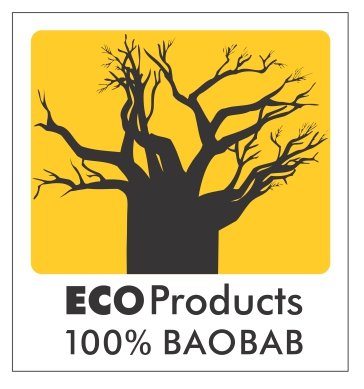Baobab Bounty
Show-casing the potential of the biodiversity economy in the Vhembe
The fruit of Africa’s tree of life
The iconic Baobab tree that dominates the landscape in Northern Limpopo produces a super-fruit of super economic potential!
Wild-harvested, the tart sherbet-like fruit of Adansona digitata processed into Baobab fruit powder and a high-value cosmetic oil can be sold to both domestic and export markets where demand has proved insatiable. Our affiliates, Eco-Products and the Baobab Foundation demonstrate the considerable potential of this renewable natural resource to create sustainable livelihoods and benefit rural communities in the region.
Sustainably harvested Baobab products, from an enterprise rooted in conservation and community.
EcoProducts, a local enterprise that supplies baobab seed oil and baobab fruit powder to the cosmetics manufacturing and retail sectors, supports as many as 800 rural harvesters and employs over 50 people in its factory where collected fruit is processed.
Profits from domestic and export sales are channeled through the Baobab Foundation to fund local baobab conservation projects, baobab research and community services, including a pre-school in the area.

A natural symbiosis
Fruit is sustainably harvested in accordance with strict protocols developed by Eco Products and the impact is minimal. The population of Baobab trees, which are of deep spiritual and cultural importance to Venda and Tsonga people, remains intact and continues to provide habitat for an extraordinary number of mammal, bird, reptile and insect species. The natural ecosystems and services nature provides in this semi-arid and sensitive region are preserved, as is the beauty of the landscape and its barely-tapped potential for wildlife, heritage and cultural tourism.
Eco-Products, in other words, has pioneered a business model in the Vhembe based on this keystone species that forms a symbiosis with nature, communities and other biodiversity-based economic sectors.
This natural resource is infinitely renewable, and for relatively little capital, the model is highly scalable…
The size of the potential loss
According to estimates by the Baobab Foundation, the value of the baobab powder and cosmetic oil that could be produced from the trees located on the 8,000ha MM-SEZ South Site is in the order of R2.8m annually and could benefit up to 250 women harvesters, while the processing of the fruit would provide up to 40 seasonal and permanent jobs per year.
A truly circular economy
Such an enterprise developed under the framework of the Operation Phakisa for the Biodiversity Economy bio-prospecting and bio-trade programmes, would require only a modest capital investment and profits would accrue to the Community Property Association that owns the land and co-owns the business.
The fruit in reach
The numbers look paltry next to the billions that the SEZ scheme to exploit northern Limpopo’s coal deposits will take and supposedly make, but from the perspective of everyone except the coal-miners and the Chinese construction contractors, and especially from that of the women who head many households in the poor rural communities of Vhembe, leaving the coal buried beneath the ground where the fruiting trees are rooted makes far more Rands and sense!
Read the submission by EcoProducts’ founder, Dr Sarah Venter, on the draft EIA report on the impact of the MM-SEZ on this keystone species and the fledgling local industry it supports.
Making a living from a living Limpopo
Phakisa means “hurry” in Sesotho. Yet the roll-out of the Operation Phakisa programme in Limpopo has ground to a slow halt, while the plan to exploit its coal deposits through heavy industrialisation in the MM-SEZ is being aggressively promoted and bulldozed through a sham approvals process.
The potential of the biodiversity economy is being sacrificed to South Africa’s coal addiction.

It is a choice.
Biodiversity and coal are not sectors that can co-exist. Only one path is viable.
A coal-to-hydrocarbon plant has always been a feature of the MM-SEZ North Site as part of the energy supply mix for the South Site.
Campaign for a Living Limpopo
Living Limpopo campaigns to stop the heavily coal-dependent Musina-Makhado SEZ and promotes the natural solution to the triple challenges of poverty, unemployment and inequality in Limpopo. Join us.














